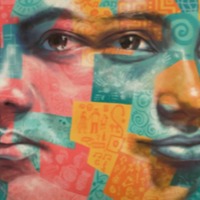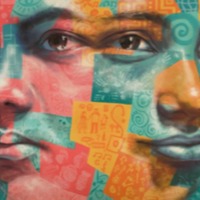
Moceica B
There are an estimated 15,000 people living in conditions of modern slavery in Australia (GSI 2018). Australia is a destination country for women from Southeast Asia, South Korea, Taiwan, the People’s Republic of China (PRC), and reportedly Eastern Europe trafficked for the purpose of commercial sexual exploitation. Some men and women from several Pacific islands, India, the PRC, South Korea, the Philippines, and Ireland are fraudulently recruited to work temporarily in Australia, but subsequently are subjected to conditions of forced labor, including confiscation of travel documents, confinement, and threats of serious harm. Some indigenous teenage girls are subjected to forced prostitution at rural truck stops. Moceica Turaga was trafficked from Fiji in 1988 at the age of 17 to work in the Australian horticultural sector. He had been promised the opportunity to continue his education and earn money to support his mother and siblings. After two years of agricultural work in Australia, he learned that none of his wages had been sent to his mother as promised. He was eventually employed by a farmer who helped him escape exploitation. He told his story for the first time in public at the Bali Process Government and Business Forum in August 2017, and then again to members of the Parliamentary committee exploring the establishment of a Modern Slavery Act in Australia in October 2017. This version of his narrative was delivered as a speech at the Catholic Archdiocese of Sydney Anti-Slavery Task Force's Ethical Sourcing Seminar and Expo on February 8, 2019 at St Mary’s Cathedral in Sydney. He lives today in Bundaberg, Australia, and works in the disability sector supporting children, youth and the elderly. He ran as an Independent candidate for the seat of Hinkler in the 2019 federal election.

Moceica A
There are an estimated 15,000 people living in conditions of modern slavery in Australia (GSI 2018). Australia is a destination country for women from Southeast Asia, South Korea, Taiwan, the People’s Republic of China (PRC), and reportedly Eastern Europe trafficked for the purpose of commercial sexual exploitation. Some men and women from several Pacific islands, India, the PRC, South Korea, the Philippines, and Ireland are fraudulently recruited to work temporarily in Australia, but subsequently are subjected to conditions of forced labor, including confiscation of travel documents, confinement, and threats of serious harm. Some indigenous teenage girls are subjected to forced prostitution at rural truck stops. Moceica Turaga was trafficked from Fiji in 1988 at the age of 17 to work in the Australian horticultural sector. He had been promised the opportunity to continue his education and earn money to support his mother and siblings. After two years of agricultural work in Australia, he learned that none of his wages had been sent to his mother as promised. He was eventually employed by a farmer who helped him escape exploitation. He told his story for the first time in public at the Bali Process Government and Business Forum in August 2017, and again at the Catholic Archdiocese of Sydney Anti-Slavery Task Force's Ethical Sourcing Seminar and Expo in February 2019. This version of his narrative was delivered in October 2017 to members of the Joint Standing Committee on Foreign Affairs, Defence and Trade during a hearing in Mildura, Australia, about the establishment of a Modern Slavery Act in Australia. He lives today in Bundaberg, Australia, and works in the disability sector supporting children, youth and the elderly. He ran as an Independent candidate for the seat of Hinkler in the 2019 federal election.